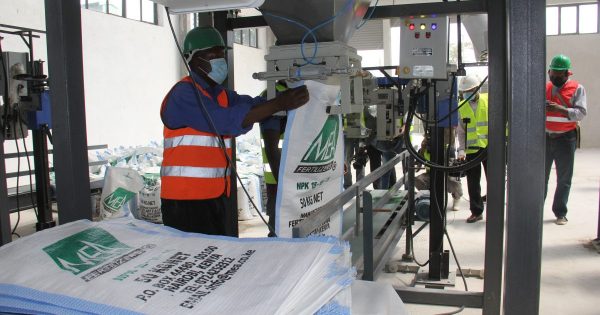A fertilizer plant constructed at a cost of US $120million in Nakuru County, Kenya has commenced operations. Executive Director of FEA, Titus Gitau confirmed the report and said that the plant will meet the specific soils and crop conditions across the East African region.
The plant project was implemented by the Fertiplant East Africa Limited (FEA) and construction works began in 2015. It was funded by Oikocredit and NCBA Bank. According to Mr. Gitau, the facility will guarantee quality and consistency for the 100,000 tonnes that will initially be produced per year, targeting over two million farmers. It is also expected to cut down cost of fertilizer production in Kenya.
“The plant produces fertilizer for various soil types and crop specific requirements informed by results from soil tests conducted. This comes in the wake of increased acidity in soils that has significantly reduced fertility, hence reduced yields for farmers,” said Mr. Gitau.
Steam granulation technology
FEA has employed over 100 people, including chemists, botanists, soil scientists, engineers, Information Technicians and plant staff. Mr Gitau who is also an agronomist noted that continuous use of non-organic fertiliser is to blame for the deteriorating state of soil in the country as most of the imported types had the wrong type of the supplements.
“This facility will employ the latest in steam granulation technology, with operations anchored in soil testing .We have started manufacturing fertiliser types that match given soil pH to fix missing nutrients in the soil and neutralise acidity. This is done after analysis of various soil samples from different regions suited for specific crops. For the past 20 years Kenyan farmers have been using fertilisers without changing formulations and with no regard for soil type and status. Consequently, most of our soils particularly in the maize growing belt cannot support the growth of plants sustainably and give desired yields,” said the director.
“We will use raw material sourced globally, including local lime and gypsum which form 30 per cent of our raw material needs. Our mission is to close the gap between actual and attainable yields by employing science and technology in producing tailor made fertilizers largely informed by soil testing results,” he added.








